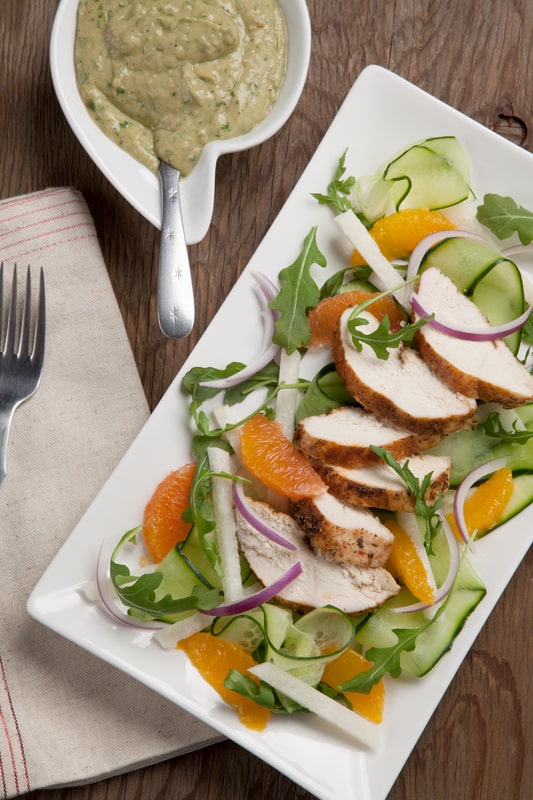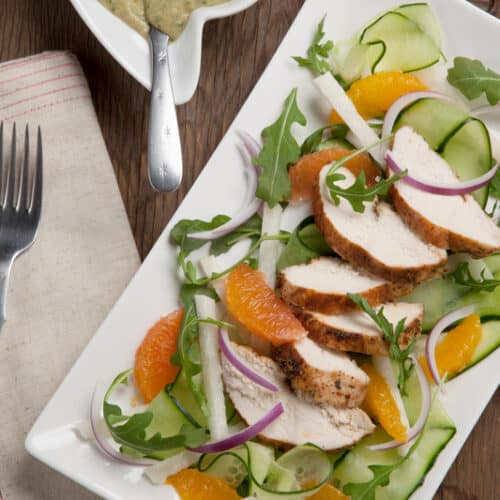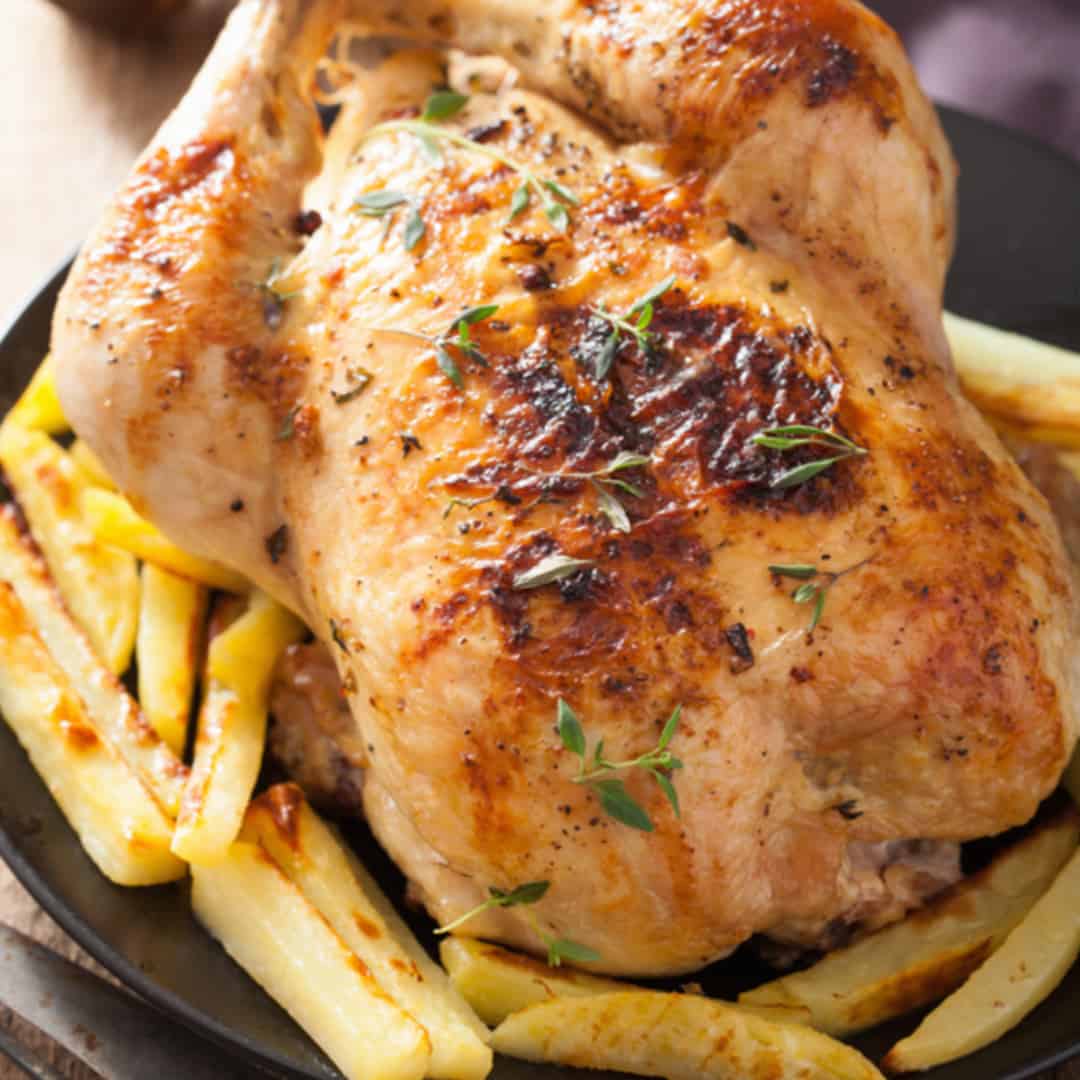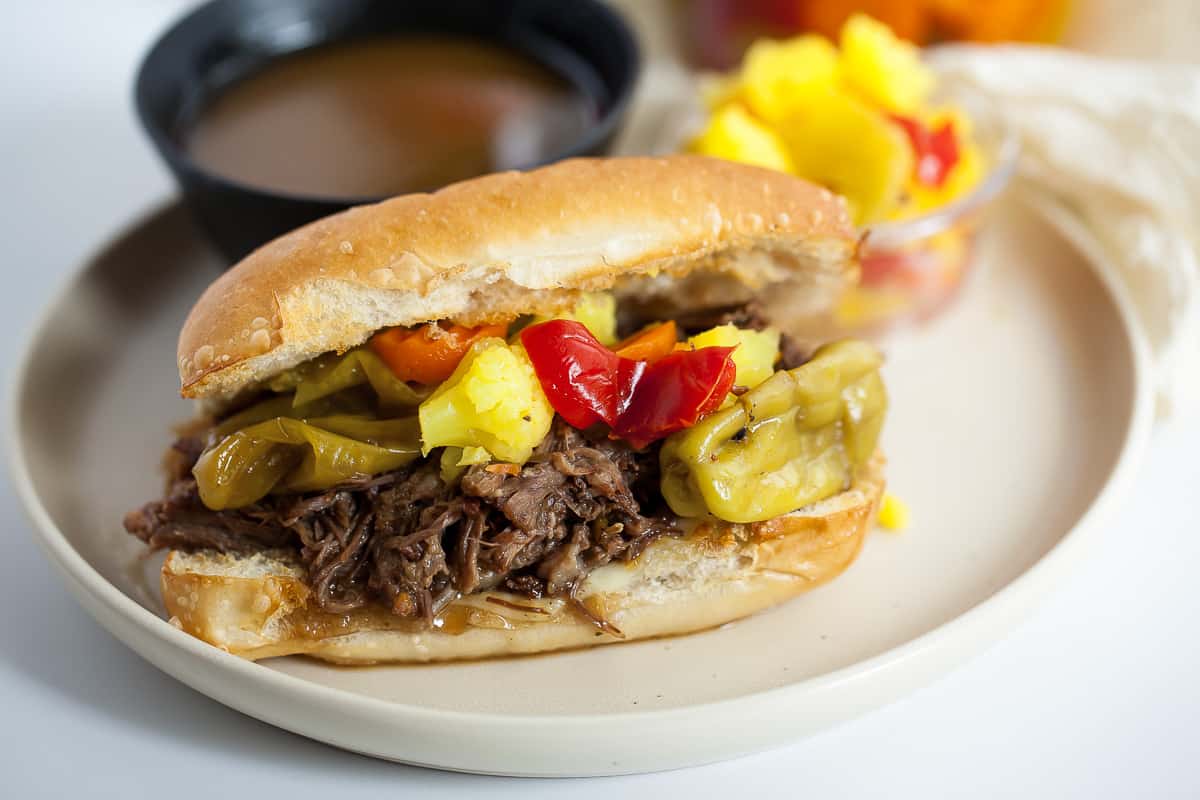Sous Vide Turkey Tenderloin
Cooking turkey tenderloin can be tricky, but with sous vide, you’re guaranteed a tender, juicy, and perfectly cooked meat every time! Great for a small Thanksgiving celebration or for high protein meal prep, sous vide turkey tenderloin recipe is easy and delicious!

Turkey tenderloin is an underrated cut of meat! Not only is it deliciously tender and full of protein, its easy to cook and can be seasoned so many different ways. Over the years of being a military wife, I’ve had some pretty quiet Thanksgiving dinners and sometimes relied on a turkey tenderloin instead of a whole turkey for a smaller gathering.
This is one of the best Thanksgiving sous vide recipes for those who are looking for turkey without a lot of leftovers and for those who want it to be perfectly cooked, tender, and juicy!
🍗What You’ll Need
- Turkey Tenderloin – You can find turkey tenderloin at your local grocery store or butcher, especially around the holiday season.
- Seasonings – The options for how to season turkey tenderloin are endless. You can use your favorite seasoning blend or a simple mix of garlic, salt, and garlic powder.
Equipment
- Immersion Circulator – The best immersion circulator is by Anova because it’s top-of-the-line quality and has a great app that connects with your phone. You can also use a budget-friendly brand such as the SAKI or InkBird brand.
- Vacuum Sealer – Use any basic vacuum sealer with your sous vide. You can also use these sous vide bags with hand pump for about $15.
- Vacuum Sealer Bags – Purchase a set of different sizes for ease and variety.
- Large Pot or Sous Vide Container – If you’re cooking a lot with the sous vide, it’s helpful to have a container that’s perfectly sized to hold the immersion circulator and the food its cooking. Otherwise, you can use a large pot or heat-safe container.
- Sous Vide Clips or Sous Vide Weights – These accessories are made to keep the food submerged in the water while it cooks to make sure it cooks evenly. You can purchase these or use a heavy kitchen utensil and binder clips.
💧Water Displacement Method
Don’t have a vacuum sealer? The water displacement method works by using the principle of Archimedes, which states that a body submerged in water is buoyed up by force equal to the weight of the water displaced by the body.
- Place your food in a Ziploc freezer bag, making sure to get as much air as possible.
- Seal the bag most of the way leaving a small opening at the end to let air escape.
- Submerge in the water letting the air come up to the top using the pressure of the water.
- Once the bag is submerged up to the seal, close it fully before fully submerging into the water.
🫕How To Sous Vide Turkey Tenderloin
1️⃣Prepare the water bath: Add water to a large pot or sous vide container that is large enough to fully submerge the turkey tenderloin without spilling over. Set the immersion circulator to your desired temperature (see chart below).
2️⃣Season the turkey tenderloin: Pat the turkey tenderloin dry with a paper towel. Season the turkey tenderloin with your desired dried seasonings.
3️⃣Vacuum seal the turkey tenderloin: Place the seasoned turkey tenderloin in a vacuum-sealed bag making sure to get as much air out as possible before sealing. You can also use the water displacement method (see below).
4️⃣Cook sous vide: Submerge the vacuum-sealed bag of turkey tenderloin in the sous vide water bath. Clip the bag to the side of the pot or container making sure it doesn’t touch the bottom or sides. Cook for the desired amount of time.
5️⃣Finish sous vide: When the turkey tenderloin is done cooking, remove them from the water bath and place them on a plate or cutting board. Allow it to rest for a few minutes before patting dry with a paper towel and using your favorite finishing method.
⏲️Best Time and Temperature To Sous Vide Turkey Tenderloin
The best time and temperature to sous vide turkey tenderloin will depend on how you like the texture of your meat. If you use a finishing method, you’ll want to cook at 150F. You can sous vide turkey tenderloin anywhere from 2-4. Use a kitchen thermometer to ensure your preferred temperature.
| Doneness | Temperature | Time | Description |
|---|---|---|---|
| Medium | 140F | 4 hours | Meat is moist and juicy and slightly pink |
| Medium Well | 150F | 4 hours | Moist and tender meat that’s perfect for finishing |
| Well Done | 165F | 4 hours | Similar to the texture of oven-roasted turkey |
🔥Finishing
There are 3 ways to finish your turkey tenderloin after it has been cooked sous vide. Keep in mind that turkey tenderloin can be extremely delicate after cooking with all of its moisture so handle your turkey with care to prevent it from breaking.
- Broiling – Place turkey tenderloin on a greased baking sheet and broil for about three minutes per side or until crisp and slightly charred.
- Air Fryer – Place turkey tenderloin in the air fryer and cook at 400F for about five minutes or until crisp.
- Cast Iron Skillet – Place turkey tenderloin in a heavy-bottomed skillet with a bit of oil over medium-high heat. Cook for about two minutes per side or until crisp and slightly charred.
🧂Seasoning Ideas
- Smoked turkey tenderloin – Add a few drops of liquid smoke to the seasoning blend.
- Cajun turkey tenderloin – Season with a Cajun spice blend or make your own using paprika, smoked paprika, garlic powder, onion powder, cayenne pepper, black pepper, and thyme.
- Herb turkey tenderloin – Mix together dried rosemary, sage, and thyme. Add some fresh chopped rosemary, sage, and thyme to the bag as well.
- Lemon pepper turkey tenderloin – Season with a store-bought blend or make your own using lemon zest, black pepper, garlic powder, and onion powder.
❔FAQ
Yes, you can sous vide turkey tenderloin from frozen. Simply add an additional 1 hour to the cooking time, and make sure the internal temperature reaches your desired doneness.
While vacuum-sealed bags are ideal for sous vide cooking, you can also use high-quality, freezer-grade resealable bags. Just be sure to remove as much air as possible before sealing using the water displacement method explained above.
Yes, it’s recommended to season your turkey tenderloin with salt, pepper, and any herbs or spices before vacuum sealing. This allows the flavors to infuse the meat during the sous vide process.
🦃More Sous Vide Turkey Recipes

Sous Vide Turkey Tenderloin
Equipment
Ingredients
- 2 pounds Turkey Tenderloin
- 2 tsp Salt
- 1 tsp Black Pepper
- 1 tsp Garlic Powder
Instructions
- Add water to a large pot or sous vide container that is large enough to fully submerge the turkey tenderloin without spilling over. Set the immersion circulator to your desired temperature (see chart below).
- Pat the turkey tenderloin dry with a paper towel. Season the turkey legs with your desired dried seasonings.
- Place the seasoned turkey tenderloin in a vacuum-sealed bag making sure to get as much air out as possible before sealing. You can also use the water displacement method (see below).
- Submerge the vacuum-sealed bag of turkey tenderloin in the sous vide water bath. Clip the bag to the side of the pot or container making sure it doesn't touch the bottom or sides. Cook for the desired amount of time.
- When the turkey tenderloin is done cooking, remove them from the water bath and place them on a plate or cutting board. Allow them to rest for a few minutes before patting dry with a paper towel and using your favorite finishing method.
Notes
⏲️Best Time and Temperature To Sous Vide Turkey Tenderloin
- Medium – 140F for 4 hours (meat is moist and juicy and slightly pink)
- Medium Well – 150F for 4 hours (moist and tender meat that’s perfect for finishing)
- Well Done – 165F for 4 hours (similar to the texture of oven roasted turkey)
🔥Finishing
- Broiling – Place turkey tenderloin on a greased baking sheet and broil for about three minutes per side or until crisp and slightly charred.
- Air Fryer – Place turkey tenderloin in the air fryer and cook at 400F for about five minutes or until crisp.
- Cast Iron Skillet – Place turkey tenderloin in a heavy-bottomed skillet with a bit of oil over medium-high heat. Cook for about two minutes per side or until crisp and slightly charred.





